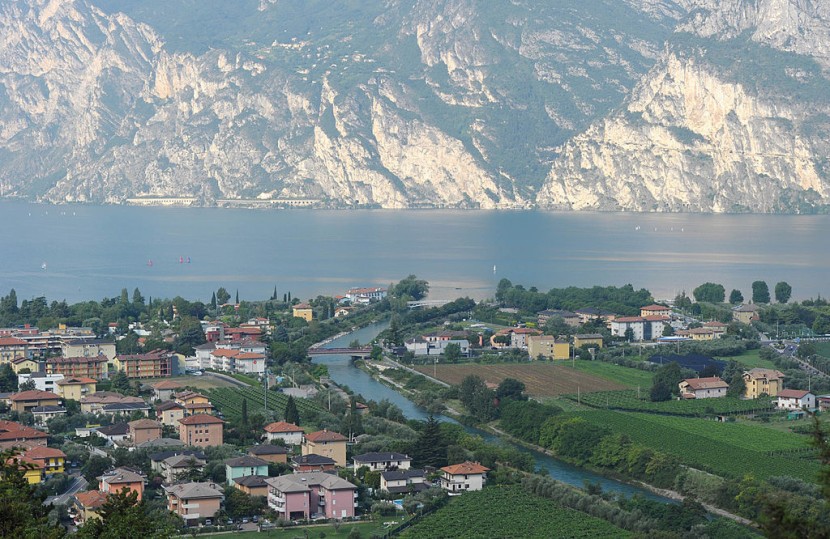
The largest lake in Italy, Lake Garda, has been reduced to nearly its lowest level ever recorded brought by the most severe drought Italy has experienced in decades.
The extreme weather has exposed large areas of previously submerged rocks and caused the water to warm to temperatures similar to the Caribbean Sea, according to a report from AP News.
At the beginning of the significant summer long weekend in Italy, tourists flocked to the well-known northern lake on Friday. However, they found an entirely different landscape than in previous years. Beyond the typical shoreline, a long span of bleached rock surrounded the southern Sirmione Peninsula with a yellow halo contrasting the water's green tint and the shore's greenery.
Tourist Beatrice Masi said they had a great experience when they visited the lake last year. But their trip this year is different.
"We found the landscape had changed a lot. We were a bit shocked when we arrived because we had our usual walk around, and the water wasn't there," she said.
Northern Italy has not experienced much rain for months, and this year's snowfall was 70% lower than usual.
Due to the severe weather, major rivers like the Po, which flow through Italy's agricultural and industrial core, dried up, severely reducing food production in the country, Euronews reported.
Europe Suffers From Extreme Heat
Italy is not the only country in Europe experiencing the worst drought in 500 years, according to climate experts.
This summer, droughts have affected several European nations, including Spain, Germany, Portugal, France, and the Netherlands. These droughts have hampered their shipping and farming sectors and prompted authorities to restrict water use. The production of a famous cheese made in France for more than 2,000 years has been forced to stop for the first time due to the drought, as per a report from New York Post.
Italy experienced a recent heatwave in late July, which caused many tourists-particularly those from Germany-to postpone or cancel their travel plans.
Garda Mayor Davide Bedinelli declared he had to safeguard the agricultural and tourism sectors. Despite cancellations, especially from German tourists. He asserted that the summer tourism season in his area was performing better than anticipated.
Bendinelli stated in a Facebook post on July 20 that "drought is a fact that we have to cope with this year, but the tourist season is in no danger."
He also acknowledged that the lake was losing two centimeters of water per day.
Other Impacts of Rising Temperatures
According to seatemperature.org, the temperatures in Lake Garda are higher than average for August. The lake's waters on Friday were close to 26°C, which is almost the same as the average temperature of the Caribbean Sea, which is 27°C. The numbers are far above average.
Aside from impacting water sources and food supply, climate change worsened more than 200 infectious diseases and several non-transmissible disorders, like venomous snake bites.
According to studies, climate risks bring people and disease-causing organisms together, which increases the incidence of sickness. Additionally, per Nature, global warming can weaken a person's ability to fight off diseases and make some disorders more severe.
Related Article: Langya Virus: Experts Suggest Further Study as New Infectious Disease Could Be Just 'Tip of The Iceberg'
© 2026 HNGN, All rights reserved. Do not reproduce without permission.








